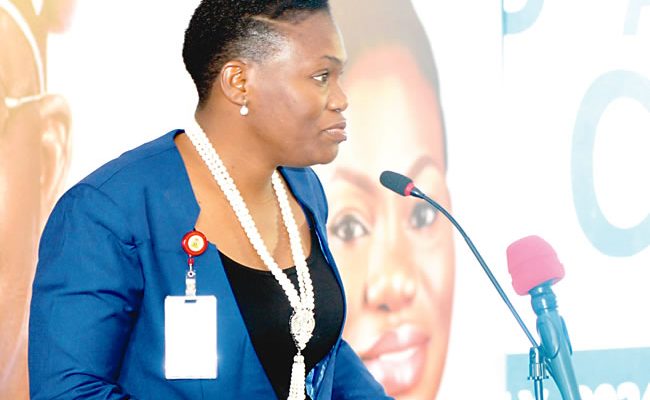Abuja Bureau Chief, LEON USIGBE, writes on the President Bola Tinubu administration’s attempt to bridge development gap through community engagement.
The Bola Tinubu administration is hoping that citizens’ assemblies concept can be an indispensable means to boost civic engagement, elevate the quality of public discussions, and guide his policy decisions. Therefore, the government is exploring this deliberative democratic process to bring together a representative group of citizens to discuss and provide recommendations on particular policy matters or development programmes. With Nigeria’s diverse population and complex political landscape, the government is now in the process of utilizing this instrument to ensure that all voices are heard and represented, fostering inclusive governance and rapid community development.

The administration is being propelled in this by the fact that inclusive governance encourages broader participation in the political process, leading to more equitable and effective policy decisions that address the needs of the entire population. By embracing diversity and ensuring fair representation, it is hoped that Nigeria can build a more stable, prosperous, and democratic society.
The President Tinubu federal government believes that these citizens’ assemblies are crucial for a country with over 250 ethnic groups, multiple religions, and a variety of cultural practices, as they fosters national unity, reduce ethnic and religious tensions, and promote social cohesion necessary for development to thrive.
Leading the charge of the administration’s effort to fully tap the potentials is a gender activist and Senior Special Assistant to the President on Community Development, Abiodun Essiet. She is pioneering the effort to entrench citizens’ assemblies in the country, starting with her August 2024 launch of the programme for the north-central states.
Leveraging her position as a senior aide to the president, she set up the initiative aimed at enhancing community engagement, dialogue, and collaboration through active participation and advocacy within Benue, Kogi, Kwara, Nasarawa, Niger, Plateau states, and the Federal Capital Territory (FCT). She affirmed that the initiative will foster meaningful community engagement and dialogue across the states, promote civic participation and local development ideas. According to her, members of the assemblies will provide timely, accurate, and verifiable information on local opportunities and challenges to authorities, maintain productive relationships with key stakeholders—including traditional rulers, local government executives, and councilors—support and participate in state-level and regional programmes and development projects.
“By fostering dialogue, understanding, and collaboration, we are proactively addressing regional needs and concerns. This decentralized approach to governance signifies a strong commitment to grassroots engagement and tailored development initiatives, reflecting the unique challenges and opportunities present in each geopolitical zone of Nigeria,” she said.
This year, Essiet conducted a survey to better understand the challenges facing grassroots communities, uncovering a significant disconnect between the federal government and local communities. According to the findings, 48.2% of respondents perceive insufficient engagement from the federal government, while 78.3% feel unrepresented in governmental policies and decision-making. Additionally, 62.1% consider community engagement organisations to be effective, but 68.7% believe the government does not consult with local communities before implementing projects.
These insights reveal a considerable gap in trust and communication between the federal government and local communities, attributed to unfulfilled promises by successive governments over the last 25 years of democratic rule. Against the backdrop of Tinubu’s Renewed Hope Agenda, she launched the programme to bridge this pressing divide.
She explained that her focus on community engagement is informed by the crucial role it plays in building trust between the government and its citizens. Establishing a direct connection ensures that the voices of the people are heard and considered in policy actions. The citizens’ assembly volunteers are selected through an open process, with each ward in the six states and the Federal Capital Territory (FCT) having one representative each.
State coordinators are appointed to facilitate meetings, maintain decorum, and ensure effective communication. Known as assembly members, the volunteers participate actively in meeting sessions, which are conducted in a circular arrangement to promote open dialogue and inclusivity, allowing participants to easily see and interact with each other.
The meetings are convened virtually at least once a month to discuss pertinent issues, share updates, and strategize on community engagement initiatives. The volunteers relay verifiable information on opportunities and challenges in their constituencies, which the presidential aide passes on to the government through her official channel for necessary actions. Through the citizens’ assemblies, Essiet said, she also aims to create a deeper understanding of community dynamics for members, provide networking opportunities, and provide them an opportunity that offers them personal satisfaction from contributing to positive change. There is no record of a similar initiative in Nigeria’s democratic journey specifically organized to address gaps in representative democracy, foster informed deliberations, promote civic empowerment, and enhance inclusivity.
Already using survey, the Nigerian citizens’ assemblies hope to introduce more technology to improve deliberative quality of discussions and enhance transparency in decision-making process The introduction of citizens’ assemblies in Nigeria marks a significant step towards achieving inclusive governance and accelerated development. By ensuring that diverse voices are heard and considered in policy-making, these assemblies have the potential to strengthen national unity and social cohesion. The Senior Special Assistant’s pioneering efforts are setting a precedent for community engagement and democratic participation, offering a model that could be replicated across the country and beyond. Observers believe that this initiative not only addresses immediate regional needs but also paves the way for a more equitable and democratic future for Nigeria.
READ ALSO: Layal Tinubu’s renewed hope for Kids







